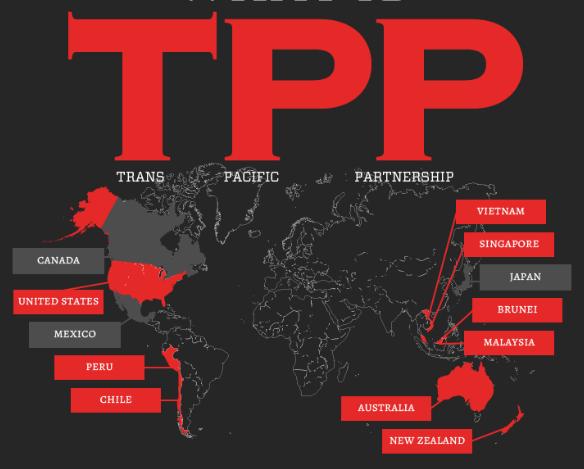“We have an opportunity to set the most progressive trade agreement in our nation’s history,” it states on BarackObama.com, the website of the president’s “Organizing for Action” campaign.
One must seriously question what President Obama and his corporate allies believe to be the definition of “progressive” when it comes to this grandiose statement. History shows the very opposite of progress when it comes to these democratic sovereignty-shredding and job-exporting corporate-driven trade treaties — unless progress is referring to fulfilling the deepest wishes of runaway global corporations.
The North American Free Trade Agreement (NAFTA) and the World Trade Organization (WTO) set our country’s progress back through large job-draining trade deficits, downward pressure on wages, extending Big Pharma’s patent monopolies to raise consumers’ medicine prices, floods of unsafe imported food, and undermining or freezing consumer and environmental rules.
The Trans-Pacific Partnership (TPP) is formally described as a trade and foreign investment agreement between 12 nations — Australia, Brunei, Canada, Chile, Japan, Malaysia, Mexico, New Zealand, Peru, Singapore, the United States and Vietnam. The White House is now pressuring Congress to Fast Track through the TPP. Fast Track authority, a Congressional procedure to limit time for debate and prohibit amendments to proposed legislation, has already passed in the Senate, although only after an unexpectedly rough ride.
Here are 10 reasons why the TPP is explicitly not a “progressive” trade agreement:
1. Over 2000 progressive groups recently sent a letter to members of Congress opposing fast track. “Fast Track is an abrogation of not only Congress’ constitutional authority, but of its responsibility to the American people. We oppose this bill, and urge you to do so as well,” the letter reads. See it in full here. On the other hand, supporters of the TPP and its autocratic, secret transnational governance, include Wall Street, Big Pharma, Big Ag, oil/gas and mining firms, and the Chamber of Commerce–in short the plutocracy does not tolerate voices and participation by the people adversely affected.

